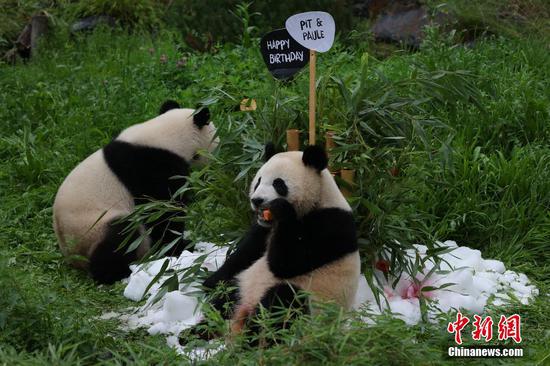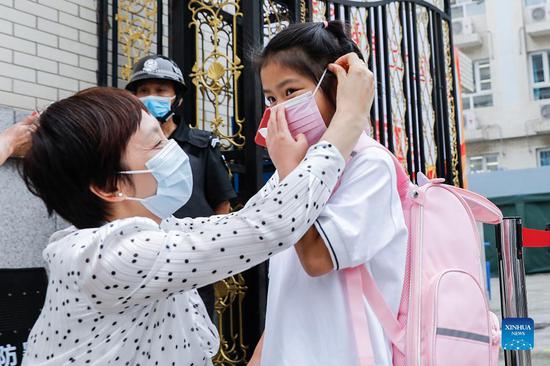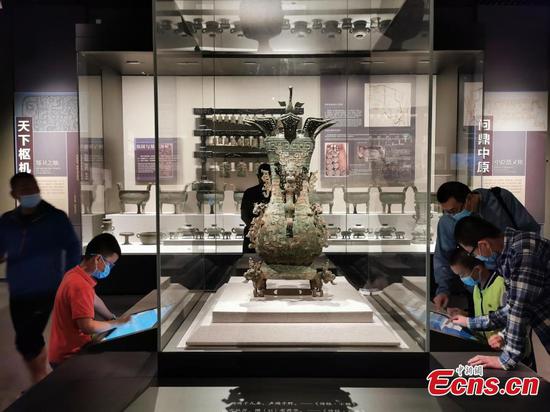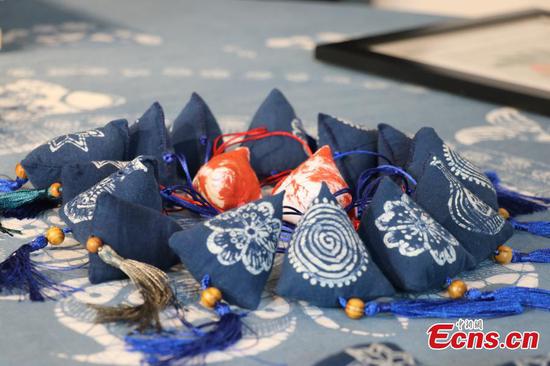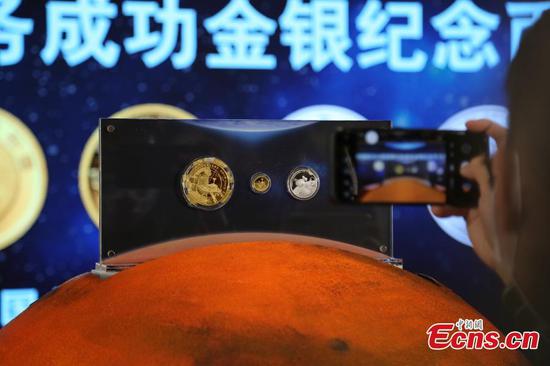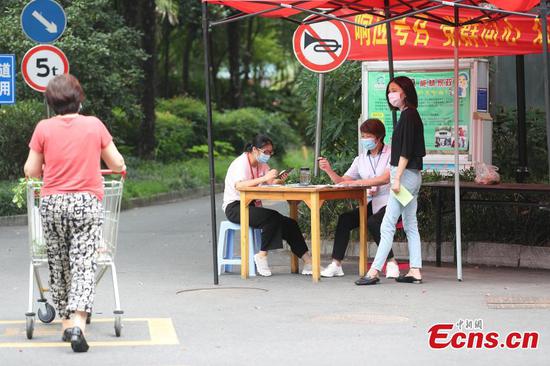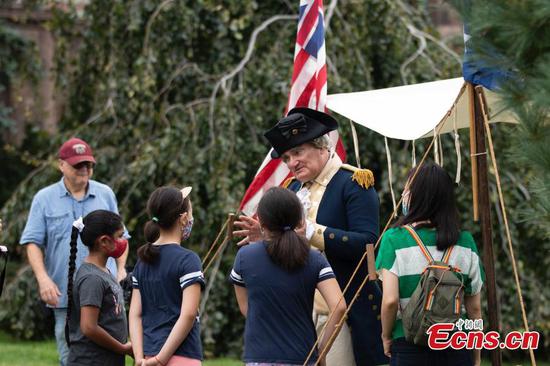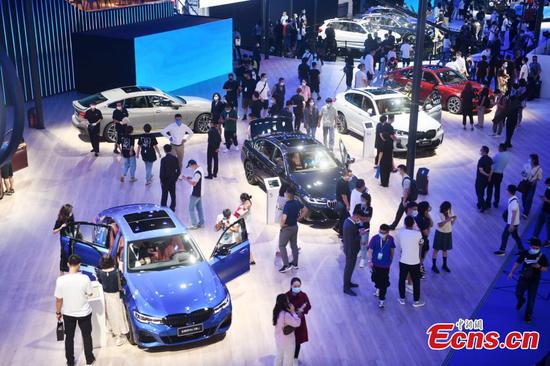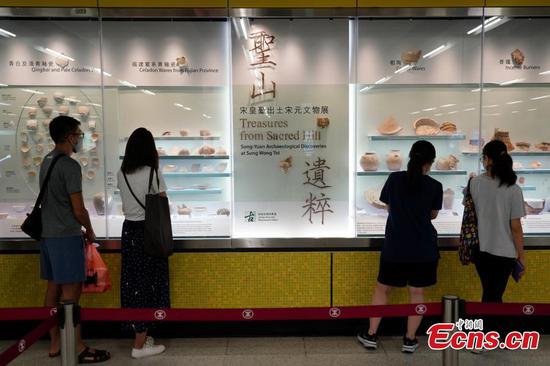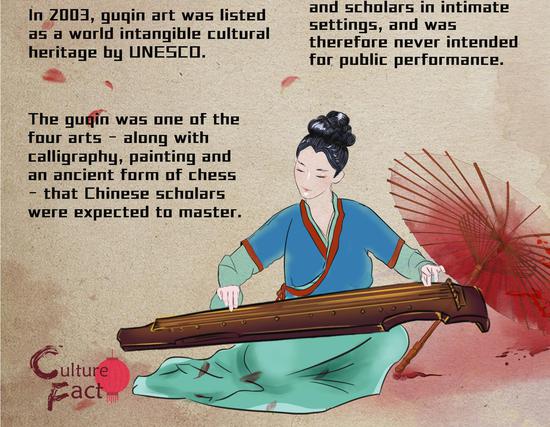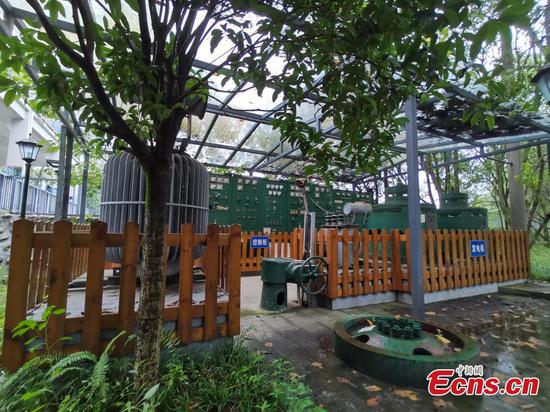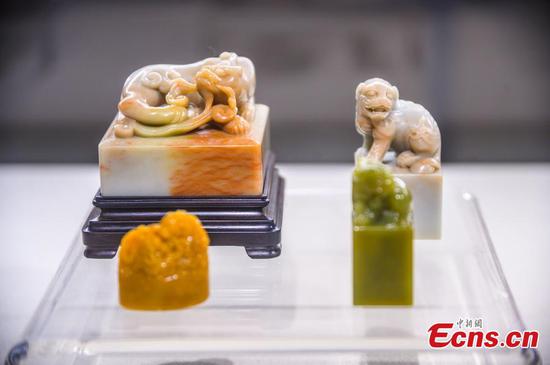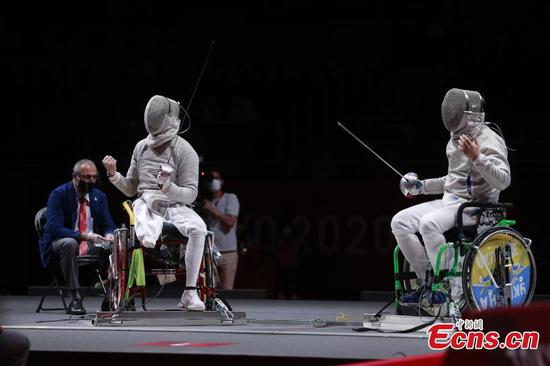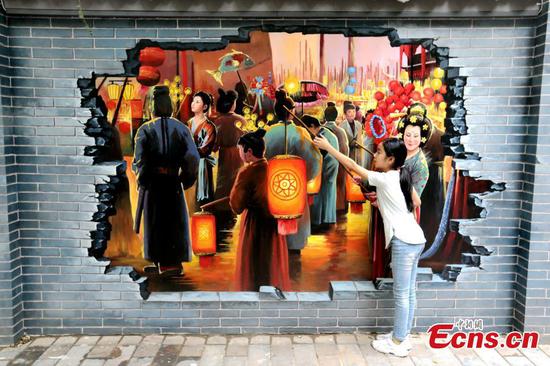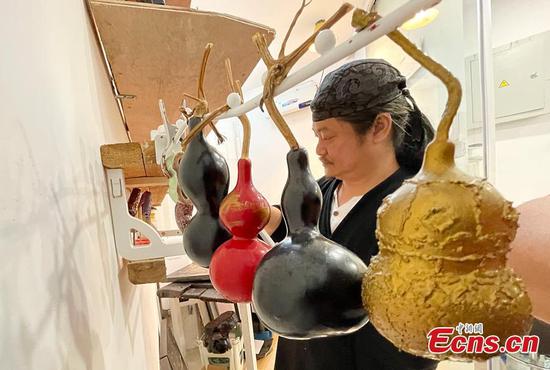Chinese Ambassador to the U.S. Qin Gang delivered a keynote speech at the welcome event by the National Committee on U.S.-China Relations Board of Directors. Qin mentioned that the extreme China policy conducted by the previous U.S. administration has caused serious damage to our China-U.S. relations. He emphasized that China-U.S. relations should not "go for misunderstanding, misjudgment, conflict or confrontation" and urged the two countries to find a way to "get along in peace" based on mutual respect.
Here's the full text:
Dear Dr. Kissinger, Secretary Lew, Ambassador Hills, President Orlins, Friends,
I wish to thank the National Committee on US-China Relations for hosting this welcome event. It's my great pleasure to meet with you online.
Over its 55 years of history, the National Committee has played an important and positive role for China-US relations. Dr. Kissinger, you have been very dedicated to China-US relations even at an advanced age. You have visited China and met with Chinese President Xi Jinping and other leaders for many times. I had the honor to be present at many of your insightful meetings. Secretary Lew, when you were the Treasury Secretary, you visited China twice to co-chair the China-US Strategic and Economic Dialogues. I was also present at both sessions, and I witnessed the fruitful outcomes of China-US dialogue and cooperation. When I participated in the China-Yale Senior Government Leadership Program in 2013, I visited the Hills & Company, and had face-to-face communication with Ambassador Hills. You answered my question patiently. During President Xi's state visit to the US in 2015, the National Committee held a welcoming banquet for him in Seattle, together with other friendly organizations. That event has left a remarkable imprint in the history of China-US relations. I still vividly remember the friendly and lively scene. To prepare for that event, Mr. Orlins and I worked together very well.
Dear Friends,
This year marks the 50th anniversary of Dr. Kissinger's secret visit to China and Ping-Pong diplomacy. 50 years ago, at the height of the Cold War, the elder generation of Chinese and American leaders showed great strategic wisdom, vision and courage. They went beyond ideological differences and reopened the door of China-US relations.
Over the past five decades, China and the US have put down past grudges. Our interests have been closely entwined, and people-to-people exchanges have deepened. All this has delivered huge benefits to the two peoples. The growth of China-US relations has changed the international strategic landscape, accelerated the end of the Cold War, advanced globalization, brought unprecedented opportunities to the Asia-Pacific, and greatly promoted world peace and prosperity. In the age of estrangement and confrontation, we had to rely on the small ping-pong ball to move the "big ball" of China-US relations. But now, many "small balls" are moving around this "big ball".
Now the China-US relationship has come to another historical juncture, and it faces a very severe situation. The extreme China policy of the previous US administration has caused serious damage to our relations, and such a situation has not changed. It is even continuing. It goes against the fundamental interests of Chinese and American people and the wishes of the international community. Some people are trying to deny the achievements of China-US ties in the past 50 years and redefine our relations by strategic competition. They assert that the era of engagement and cooperation is over, and it must be replaced by competition and confrontation.
There are three wrong beliefs on China-US relations in the United States.
- Some people believe that China is betting against America, and China's goal is to challenge and displace America. This is a serious misjudgment of China's strategic intention.
Everything the Communist Party of China (CPC) does is to pursue happiness for the Chinese people. Our plans and policies are all made with the people at the center. They are to serve China's development, and modernize our governance system and capabilities. In the end, they are for the purpose of meeting the people's aspiration for a better life. As an English proverb goes, God helps those who help themselves. China never bets its own future on other countries. We only want to surpass ourselves. We never take surpassing the US as our goal, and we never have the ambition to challenge and displace America, or to seek hegemony in the world.
The interests of China and the US are closely integrated. They cannot be cut off as anyone wishes. America has been extensively involved in China's reform and opening-up. In 2020, China-US two-way trade reached 580 billion dollars. The US is China's largest trading partner, and China is the second biggest holder of the US Treasury bonds. China-US trade supports 2.6 million American jobs. We are inseparable stakeholders, and the success of one side is critical to the other. China does not bet against America. Instead, we are glad to see America resolve its problems by itself, not by undercutting other countries, or by prescribing medication for others. We are glad to see America remain prosperous and strong, and make greater contribution to world peace and stability. I believe that both countries can benefit from the development and prosperity of the other side.
- Some people believe that America needs to deal with China from a position of strength. They think America can win the new "Cold War" against China, just as it defeated the Soviet Union. This reflects a serious ignorance of history and China.
China is not the Soviet Union. The Soviet Union's collapse was its own making. The Communist Party of the Soviet Union had been rigid, corrupt, closed to the outside world, and detached from the people. It had been obsessed with arms race and external aggression. As a result, the country's development halted. People's lives were difficult, and they were very unhappy. The Soviet Union and the United States had little engagement at that time, and their relations were extremely tense. The two blocs of the Cold War could barely coexist. When the Soviet Union collapsed, almost none of its Party members stood out to say no. China has learned from this part of history that hegemonism will only lead to decline.
Under the leadership of the CPC, China's socialist democracy keeps improving. The people are the master of their own country. The nation enjoys economic development, social stability and better livelihoods for the people. It has eliminated absolute poverty. Meanwhile, the CPC enforces strict discipline over itself. With over 95 million Party members, the CPC always bears in mind its original aspiration to pursue happiness for the people. It shares one mind with the people, and works together with the people. Harvard Kennedy School has conducted a survey on Chinese public opinion for 10 years in a row. According to the results, over 90% of the Chinese citizens surveyed are satisfied with their government, and this has been the case for the whole decade.
China is closely linked to the US and integrated with the world. It's the world's second largest economy, the biggest trader in goods, and the number one destination of foreign investment. It is the biggest trading partner of over 120 countries and regions. China never engages in aggression or expansion. It never exports its political system or development model. It is committed to peaceful, open, cooperative and common development, and works to build a community with a shared future for mankind. Does such a country look like the Soviet Union? Does the CPC look like the Soviet Union's Communist Party?
The Cold War is not too far in our memory. The conflict between major countries is just like yesterday. It would be absurd and dangerous to apply the "Cold War playbook" to today's China-US relations, and to take China as its rival and imaginary enemy, just like when Don Quixote tilted at windmills. Is any country willing to take sides between China and America? I have never heard any country say so. To the contrary, many countries are reluctant or concerned about being forced by the US to pick sides. I hope American politicians would seriously consider: Does suppressing China really serve their purpose? Does it really meet America's own interests? Who can bear the disastrous consequences to China-US relations and the world? Dealing with China from a position of strength - the Chinese people simply do not accept it.
- Some people believe that cooperation is being phased out by competition and confrontation. This is a very misleading perception for the prospects of China-US relations.
In fact, the need for China-US cooperation is not decreasing, but increasing. Our two countries should not be enemies, but partners. Over 70,000 American companies have investments in China, and these investments pay well. According to the latest report of the US-China Business Council, 95% of the American companies surveyed made a profit in China last year, and 64% saw their revenue grow in the Chinese market. Before I came to the US, I had discussions with the American business community in China. They all told me that no country can take the place of China in global industrial chain. They value the Chinese market, they are optimistic about the Chinese economy, and they hope to stay in China and expand their investments. They are firmly opposed to the trade war, to decoupling, and to cutting off supplies to Chinese companies. They are most worried about the uncertainty that a worsening China-US relationship may have on them.
In the early 1960s, China's relations with the Soviet Union turned bitter. The Soviet Union withdrew all the experts and assistance from China. At that time, China was caught up in serious difficulties. Terrible droughts caused dire shortage of food, and the people had barely enough to eat. But we met these difficulties head on, and relied on ourselves. Within a few years, we put in place a complete industrial system and national economic system. We launched major scientific and technological programs. In 1964, almost 90% of the main machinery in China was self-manufactured. In 1965, we produced enough petroleum to meet the demands of the Chinese economy at that time. In 1964, China's first atomic bomb was successfully tested. China knows how it feels to have its back to the wall, just like the situation today when we face the threat of cutting off supplies. But we have all made it through. When the US chooses to use state power to bring down Huawei, it can only expect, in the words of many Chinese, not the collapse of Huawei, but the emerging of more companies like Huawei. In the ongoing Tokyo Paralympic Games, Chinese athletes are well leading the medal tally. This is because after all the historical ups and downs, the Chinese people would always strive for self-perfection even in hardships.
The world is undergoing major changes unseen in a century. The interests of various countries are closely integrated. They are connected in a community with a shared future. No country can face the challenges in the world alone, and no country can really be the first by hurting others. In particular, COVID-19 is still rapidly spreading worldwide. International terrorism is still active. Climate change has sent a "Code Red" to humanity. Regional hotspots keep surfacing. On these major issues concerning mankind's future, coordination and cooperation between China and the US, as two major countries, become all the more necessary and urgent. This is also the general expectation of the international community.
Dear Friends,
At this critical juncture for China-US relations, we should not miss historical opportunities. More importantly, we should not make historical mistakes. Instead, we need to face up to the reality and trend of the times, return to rationality, take a responsible attitude to history, to the two peoples and to the world, and keep to the right direction of China-US relations. China and the US should not go for misunderstanding, misjudgment, conflict or confrontation. As two major countries with different political systems, cultures and development stages, we must find a way to get along in peace based on mutual respect.
My observations:
- First, the two sides should be clear about each other's bottom lines and show mutual respect. In their Tianjin meeting, State Councilor and Foreign Minister Wang Yi marked out "three bottom lines" of China to Deputy Secretary of State Wendy Sherman. They are all about China's core interests. The Chinese side also put forward "two lists" to the US side: a list of US wrongdoings and a list of individual cases of China's concern. The lists are symptoms, and the bottom lines point to the root causes. It is hoped that the US side will exercise caution on issues concerning Taiwan, Hong Kong, Xinjiang, Xizang and the South China Sea, respect China's sovereignty, security and development interests, stop interfering in China's internal affairs, and avoid touching or challenging China's red line.
There is an important historical rule for the Chinese civilization: when the country remains unified, stable and united, it will enjoy prosperity and development; when it is in war, turbulence or division, it means humiliation and disaster for the Chinese nation and civilization. That's why the Chinese people value sovereignty and territorial integrity as much as their own lives. There is no room for compromise or backdown on this issue. Taiwan has been an inseparable part of China since ancient times. If anyone supports or connives at "Taiwan independence", the 1.4 billion Chinese people will never agree. Just imagine, if anyone wants to get an American state independent from the US, will the American people say yes? Please put yourselves in our shoes. I hope that the US side will earnestly respect China's core interests, and cautiously handle these issues. This is the fundamental precondition to achieve no conflict and no confrontation, and develop a constructive China-US relationship.
- Second, the two sides should maintain dialogue and manage differences. We need to follow through on the spirit of the telephone call between President Xi and President Biden on the eve of Chinese New Year, enhance communication and exchanges, and promote mutual trust. We are willing to strengthen communication with the US between the departments of foreign affairs, economy, finance, law enforcement and the military, and rebuild dialogue mechanisms. This is to accurately understand each other's policy intentions, properly manage and handle differences in a constructive way, prevent misunderstanding and misjudgment from becoming conflict and confrontation, avoid further damage to our relationship, and realize the stable development of the relations. Of course, the best way to prevent crises is to address their root causes, at least not to rub salt into the wound.
- Third, the two sides should remove disturbances and focus on cooperation. At the bilateral level and on global issues such as climate change, we can build up small steps and address easier problems first, so as to find the entry point to improve our relations and expand cooperation. At the same time, we need to jointly remove obstacles for cooperation. It is hoped that the US would recognize that COVID-19 is its real enemy, respect science, and stop political manipulation on the origins tracing of the virus. A little more than six months into this Congress, there have already been more than 260 bills with negative content on China, out of no knowledge, misunderstanding and disinformation of China, particularly the Innovation and Competition Act of 2021 and the EAGLES Act. They underestimate the common interests between the two countries. If they become laws, they will hijack China-US relations and gravely damage America's own interests.
Dear Friends,
There is a long way to go to improve and develop China-US relations. The historical mission of upholding and promoting our relationship in the new era has come to us. Serving as Chinese Ambassador to the US at this time, I will enhance communication and dialogue with various sectors of the US, act as a bridge and bond between the two countries, promote mutual understanding, and work to build a more rational, stable, manageable and constructive China-US relationship. I look forward to working together with the National Committee towards this goal.
Thank you!









